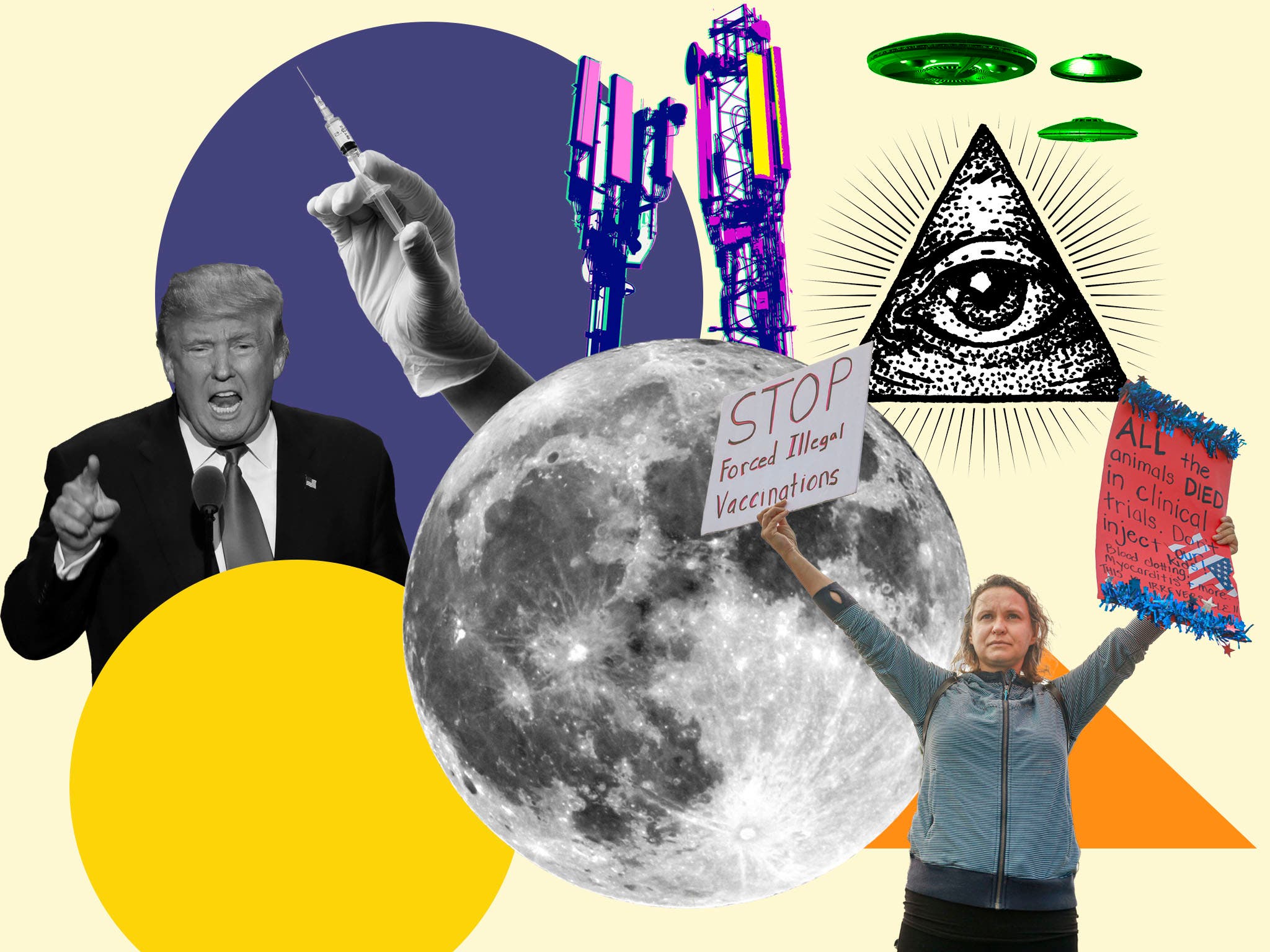Why do so many people believe in conspiracy theories?

Once upon a time, conspiracy theories were, in the general consciousness, something of a joke. The phrase once conjured images of a social outcast sitting in their mum’s basement, wearing a tin-foil hat to ward off vague ideas of mind-control waves, and trying to prove that John F Kennedy had actually been shot by two different gunmen.
Popular conspiracy theories used to include things such as claims that the Apollo 11 moon landings of 1969 were faked by the US Government to artificially win the space race with Russia. Theorists pointed to the “fact” there were no stars in the sky in the photos, the American flag seemed to be rippling in the wind, of which there would be none on the Moon, and that the shadows of the astronauts were in the wrong place.
Then there are long-running conspiracy theories such as “the Illuminati” who some believe pull the strings of global governments. Back in 1975, Robert Anton Wilson and Michael Shea wrote their satirical science fiction trilogy The Illuminatus! which mapped a drug-fuelled story on the prevalent conspiracy theories of the day.
This article has been archived for your research. The original version from The Independent can be found here.


